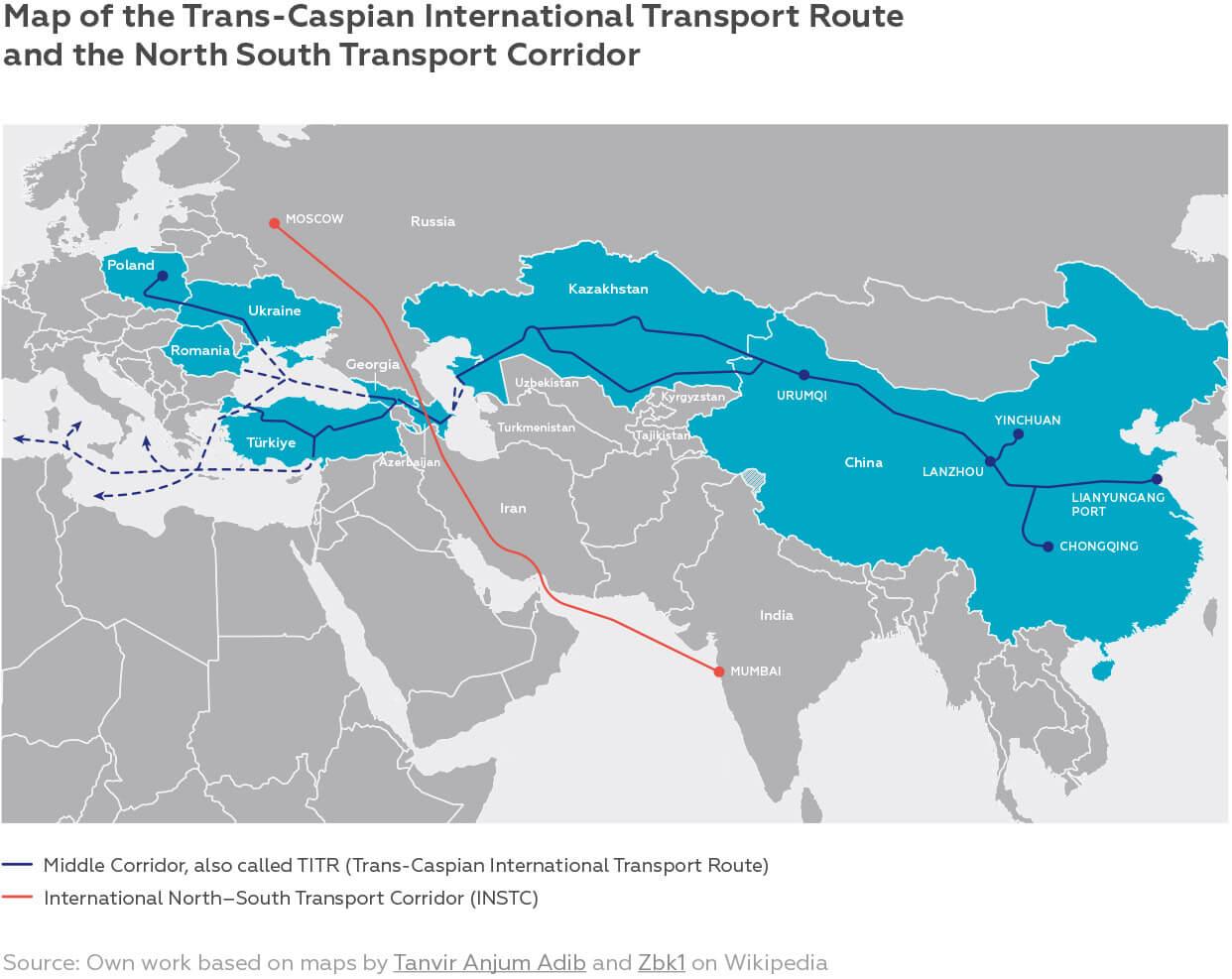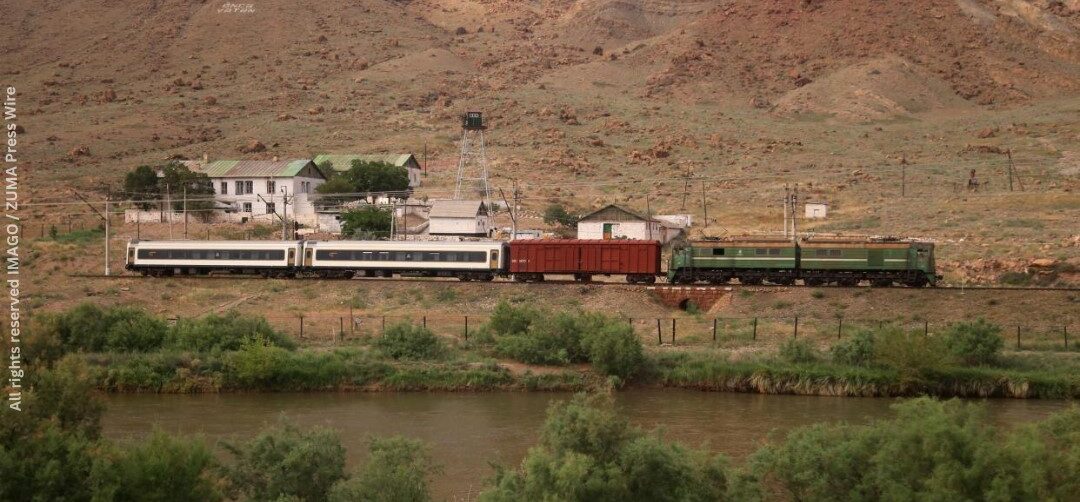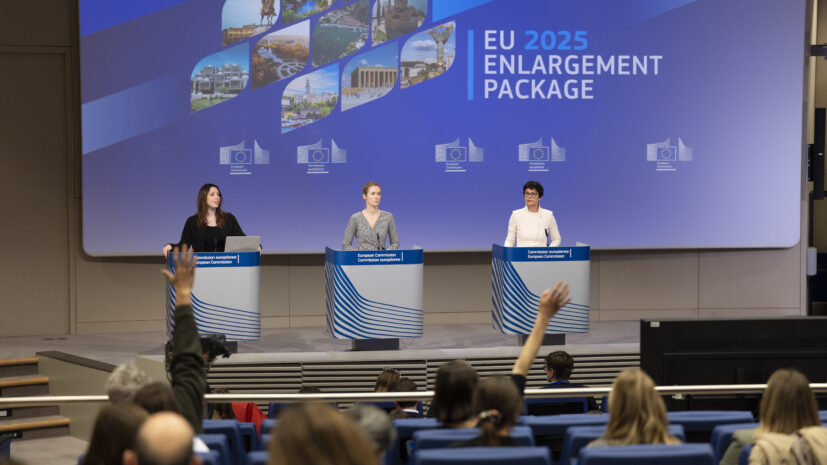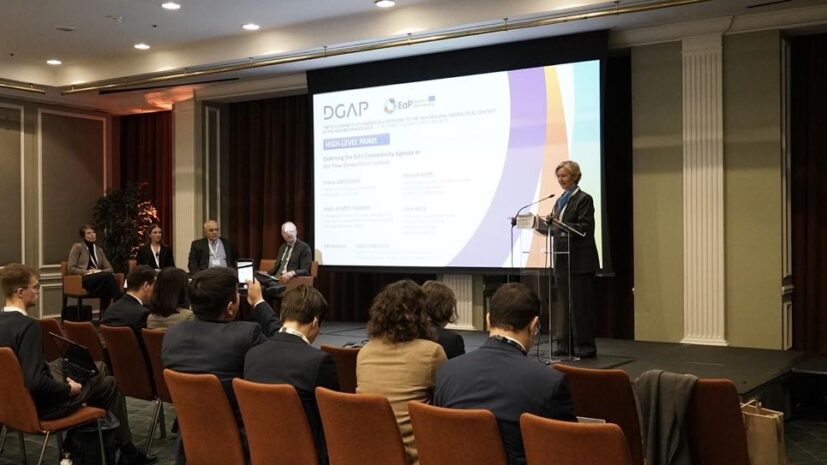

The End of Russian Hegemony: A New Transactional Order Arises in the South Caucasus
This online text is the executive summary and introduction of the DGAP Report “The End of Russian Hegemony: A New Transactional Order Arises in the South Caucasus”.
Download the full report including footnotes here.
Executive Summary
Russia’s large-scale invasion of Ukraine in February 2022 weakened Moscow’s role in the post-Soviet region. Now we are seeing the end of Russian hegemony in the South Caucasus, with actors like Türkiye, Iran, China, and the EU increasing their engagement there and Russia focusing its resources on Ukraine. That means Russia must make compromises to influence regional politics, and it cannot force other actors to change their policies.
With its victory in the Second Nagorno-Karabakh War and the military takeover of the disputed region, Azerbaijan has become a key driver of regional security. The leadership in Baku has to some degree the political will and the resources to dictate a peace agreement with Armenia. Already one year earlier successfully bargained with Moscow the withdrawal of Russian “peace forces” from Nagorno-Karabakh. This makes Armenia the main loser of the new geopolitical situation in the region, since it lost the war and military support of its traditional ally, Russia. At the same time, Armenia lacks the military power to deter pressure from Azerbaijan. Iran has become more active in the South Caucasus since Russia, as the traditional dominant power, cannot guarantee authoritarian stability anymore. Iran wants to prevent its adversary Turkey and Azerbaijan from gaining more influence in the region and from building an extraterritorial corridor on its northern border via the territory of Armenia.
With the war in Ukraine and comprehensive Western sanctions, Russia’s interests in the South Caucasus have changed. It needs alternative trade routes to Iran and India via the North-South Transport Corridor and countries like Armenia, Georgia, and Türkiye to circumvent sanctions. The government in Tbilisi, led by the Georgian Dream (GD) party, has moved the country toward a hedging strategy vis-a-vis Moscow and is becoming increasingly authoritarian. With comprehensive voter manipulation, GD won the parliamentary election for the fourth time in October 2024 and wants to end Georgia’s path toward EU and transatlantic integration. This gives Russia greater influence over Georgia, since authoritarianism, corruption and informal politics are growing – all entry points for Russian influence. Russia, Turkey and Iran all agree on keeping the West out of the South Caucasus. They are trying to establish a 3+3 format with the three Caucasian states to find regional solutions for regional problems – without the EU and US.
The EU has been more engaged in the region since 2022, facilitating a peace agreement between Armenia and Azerbaijan, offering Georgia EU candidate status, and developing a transit connectivity strategy to bring the South Caucasus closer to the EU. EU member states want to develop an alternative trade and transit corridor via the South Caucasus to the Caspian Sea and Central Asia and to obtain more resources like oil and gas from these regions. But Brussels cannot provide security guarantees to any South Caucasus countries. Since Armenia has become alienated from Moscow due to the lack of Russian support in Nagorno-Karabakh, it is now seeking closer ties with the EU. The EU and some member states are providing more financial and security support, and Brussels has deployed a monitoring mission on the Armenian side of the border with Azerbaijan and has started visa liberalization negotiations. But neither the US nor the EU will give Armenia any security guarantees, which will keep the country vulnerable for some time.
The result is the rise of a new regional order which is more transactional and driven by the power of the strong. Multilateral institutions like the OSCE will no longer play a role in the region. No single actor can dominate the regional security order, and the lack of trust and consensus about a new regional order will keep the South Caucasus in a state of instability for some time. The outcome of the war in Ukraine will have a major impact on the future of the South Caucasus since this will decide whether Russia or the West shapes the rules of the future European security order.




